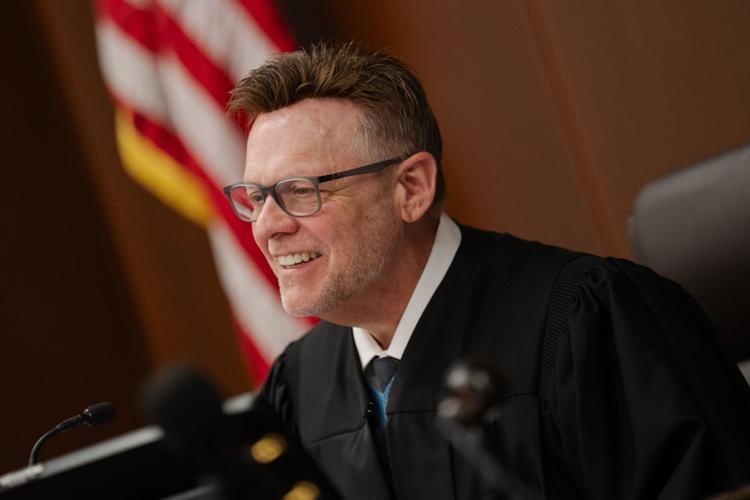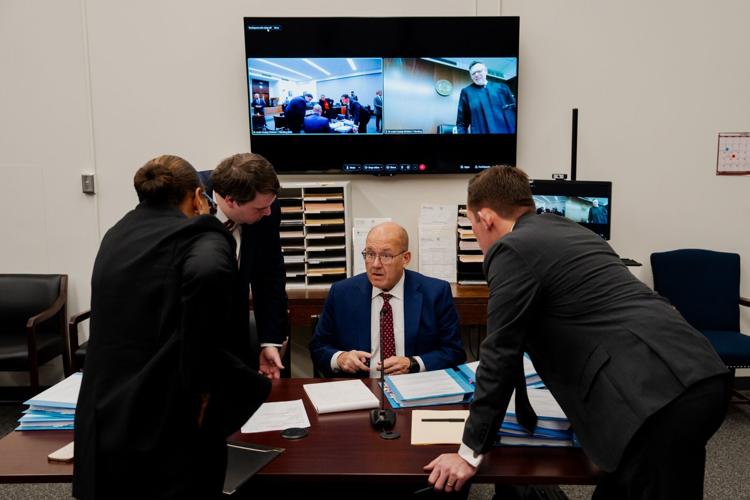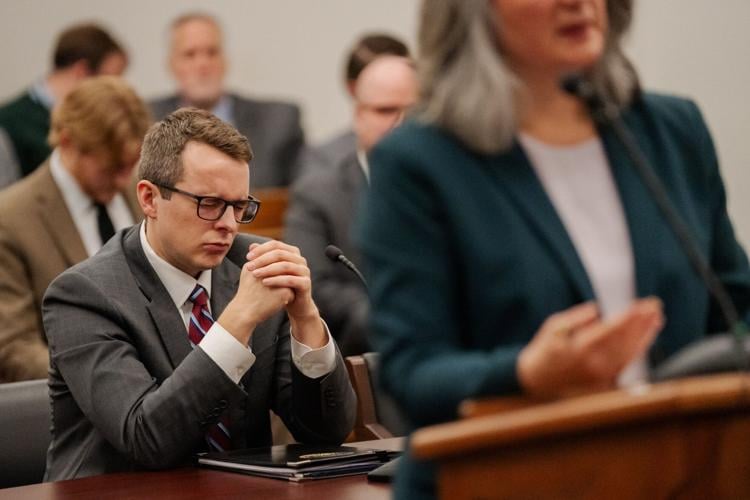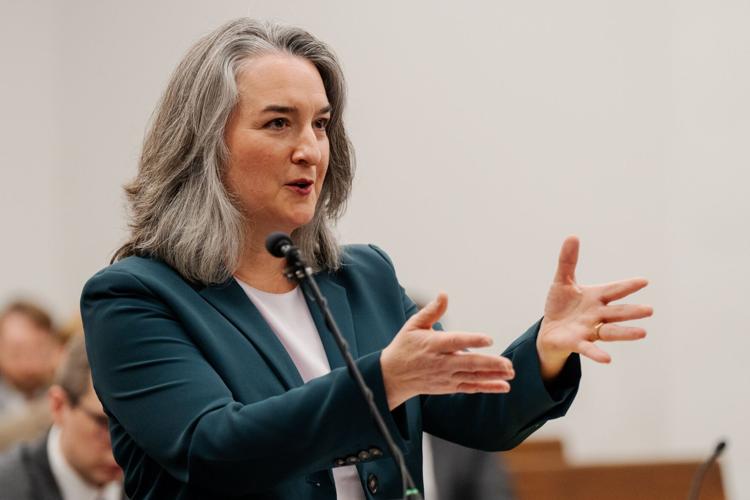CLAYTON — Lawyers for Missouri and St. Louis County on Wednesday morning each argued that their executives should get to appoint the next county prosecutor, the latest development in the standoff between Gov. Mike Parson and County Executive Sam Page.
Prosecuting attorneys represent the state, not the county, Assistant Attorney General Andrew Crane told Circuit Judge Brian May. So they are not county officers, and Page doesn’t have the power to appoint them, Crane said.
“In the opinion of the state, the state’s governor ultimately gets to control who makes that choice,” he said, saying the power is spelled out in the state’s Constitution.
But Neal Perryman, a private attorney hired to represent Page and the county, argued that the prosecuting attorney’s power is limited to the county, which gives Page the power to appoint.
People are also reading…
Throughout Missouri history, said Perryman, the governor has never asserted the authority to appoint a prosecuting attorney in a county with its own charter.
May wasn’t sold: “So what?” he asked Perryman.

Neal Perryman, an attorney representing St. Louis County Executive Sam Page, center, groups with his staff and the county counselor after a court hearing on who gets to appoint Prosecutor Wesley Bell’s replacement on Wednesday, Dec. 18, 2024, at the Courthouse in Clayton.
The legal battle began late last month when Parson and Missouri Attorney General Andrew Bailey, both Republicans, sued Page, a Democrat, to stop him from naming the county’s next prosecuting attorney, a vacancy that will come Jan. 2, when current prosecutor Wesley Bell steps down to take his seat in the U.S. House the following day.
St. Louis County lawyers argued the county charter allows Page to nominate a replacement. And on Dec. 3 Page announced his replacement for Bell: Cort VanOstran, a federal prosecutor and a Democrat.
About a week later, on Dec. 12, Missouri Gov. Mike Parson nominated Melissa Price Smith, an assistant prosecuting attorney in the county and also a Democrat.
Lawyers for the state and county appeared in St. Louis County court on Wednesday morning.
Perryman, the county’s attorney, answered the judge’s question:
In seven prosecuting attorney midterm vacancies in other charter counties, the governor never appointed the replacement, Perryman said. So if Parson is now asserting his legal right to appoint someone to this vacancy, then that argument implies that those seven other vacancy appointments are “not legitimate.”
But the judge countered and said no one knew why the governor didn’t appoint someone in those other vacancies. It’s possible, May said, that government leadership agreed on whom to put into those positions and so the governor allowed county leaders to announce the appointments.
Perryman pushed his point.

Missouri Assistant Attorney General Andrew Crane reacts during a court hearing on who gets to appoint St. Louis County Prosecutor Wesley Bell’s replacement on Wednesday, Dec. 18, 2024, at the St. Louis County Courthouse in Clayton.
“The reason there was no challenge to (those appointments) is because everybody knew the charter counties had the power,” he said.
There is a century of Supreme Court cases that identify prosecutors as county officers, not state officers, Perryman said.
But Crane, the attorney for the state, said all of Missouri’s prosecuting attorneys are “carved out of the Attorney General’s power,” making them state officers first and foremost — regardless of the fact that county governments are usually in charge of budgets and other operations in those offices.
Later in the hearing, attorney Kimberley Mathis said she filed a motion to enter the case on behalf of councilmembers Shalonda Webb and Mark Harder. She said she also represented councilmembers Rita Heard Days and Dennis Hancock.

Kimberley Mathis, an attorney representing several members of the St. Louis County Council, explains her requests to add the counsel to a lawsuit deciding who gets to appoint St. Louis County Prosecutor Wesley Bell’s replacement on Wednesday, Dec. 18, 2024, at the St. Louis County Courthouse in Clayton.
The council had, just Tuesday, grilled the two nominees on their experience and prosecutorial philosophies and then recommended the full council deny VanOstran’s nomination.
Still, Page has argued he has the power to seat VanOstran as an “acting” prosecutor without the council’s approval.
Mathis argued to May that her clients should be added as parties in the case because if Page ultimately prevails, the councilmembers want the opportunity to argue in court that he should not be allowed to bypass council approval.
Whoever is picked to fill Bell’s shoes will serve until January 2027, when Bell’s current term ends.

Judge Brian H. May listens during a court hearing on who gets to appoint St. Louis County Prosecutor Wesley Bell’s replacement on Wednesday, Dec. 18, 2024, at the St. Louis County Courthouse in Clayton.
May, the judge, said both sides have agreed not to appoint anyone to the office while the case is pending, noting he expects an appeal to be filed regardless of how he rules.
He said he would issue a ruling as swiftly as possible given the looming vacancy and said the separate council issue will need to be determined at a later date, so as to not bog down the immediate issue of who has appointment powers.
Later on Wednesday he denied Mathis’ motion to join the case.
“I have immense respect for Dr. Page and Gov. Parson,” May said before wrapping up the hearing. “This has nothing to do with personalities, this is about the law.”



















